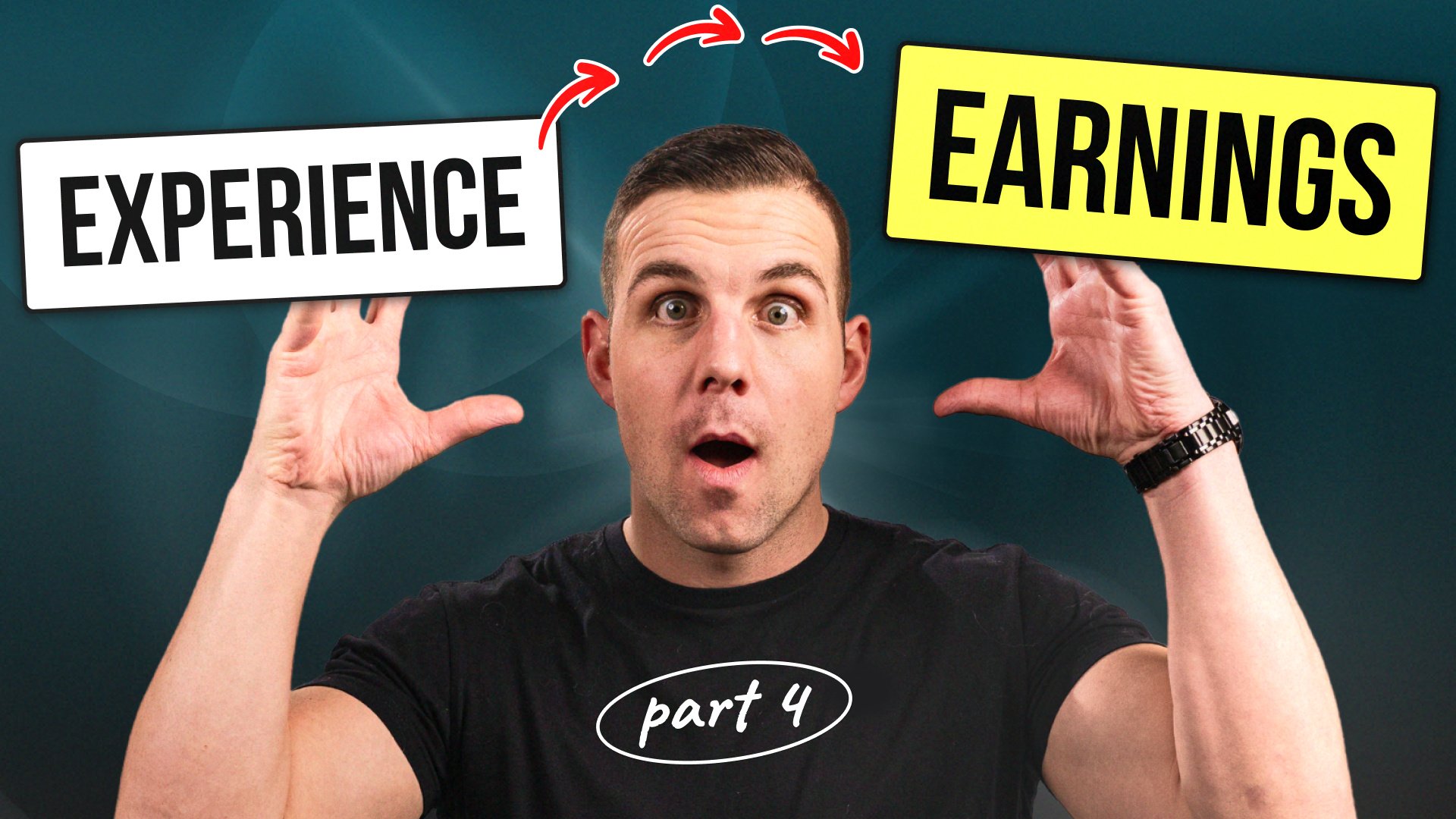5 Ways To Make Money Online With Your Knowledge – Part I (Best Business For Beginners)
 Tyler Johnston
Tyler Johnston
Jun 11, 2024
How To Launch Profitable Online Challenges
Watch The Video Here
Are you looking to turn your knowledge and expertise into a profitable online business? Without a solid business model, your efforts might not get you too far. Luckily, today, we’re sharing a new series of five proven ways to monetize your expertise online. The best part? You can start these all as a solo entrepreneur without needing a big team or the overhead costs that come with one.
These five business models will help you turn your skills and research into revenue, allowing you to focus on what you love. Plus, we’ll share some top tools to speed up your journey, thanks to the power of AI. So grab a pen and paper or a cup of coffee, and let’s get started.
Here's What You'll Need:
- Existing content (such as audio, video, PDFs, Facebook lives, Zoom recordings, etc.)
- An active Searchie account.
Once you’ve got these two things, you’re ready to start with the first proven business model to help you turn your content into cash—hosting an online challenge.
Host An Online Challenge
Hosting an online challenge is one of the quickest ways to start making money online. This model is great for beginners because it’s easy to set up and can generate immediate engagement.
Online Challenge Advantages
Quick Setup: A challenge can be launched rapidly, making it ideal for getting started. You don’t need extensive planning or resources; a clear goal and structure are enough to get you going.
Engagement: Quick wins for participants boost your credibility and trust. Challenges provide tangible results for participants, making them feel accomplished and more likely to engage with your future offerings.
Flexible Pricing: Challenges can be free to build your email list or paid for immediate revenue. A free challenge helps grow your audience, while a paid one brings in direct income.
Online Challenge Limitations
Variable Revenue: Your income will depend on the number of participants. More participants mean higher revenue, but fewer sign-ups could limit your earnings.
Time Commitment: Depending on the challenge duration, it might require significant ongoing effort. Short challenges are less demanding, but longer ones need more of your time and availability.
Organizational Skills: Effective challenges need planning and management. You’ll need to plan content, manage participant interactions, and ensure a smooth experience.
Who Online Challenges Are Great For
Online challenges are very well suited for motivators and guides who can lead participants to a specific goal. If you excel at inspiring and directing people towards achievements, this is for you.
This model is also great for entrepreneurs seeking quick growth and easy audience engagement. Challenges can be a perfect fit if you’re starting out and want rapid growth and audience interaction.
How To Get Started
1. Define Your Topic and Goal: Choose a specific, achievable goal for your challenge, such as a “Four-Week Jumpstart Healthy Eating Challenge” or a “Seven-Day Email Marketing Bootcamp.” Ensure the goal is clear and can be accomplished within the challenge timeframe. If you’re having trouble thinking up the best topic and goal for your challenge, you can turn to AI, like Chat GPT to help get you started with a simple prompt like:
I specialize in [topic of expertise], and want to create an online challenge for [target audience / niche]. Can you help me come up with a topic, goal and duration for my challenge, similar to these examples: “Four-Week Jump Start Healthy Eating Challenge”, or “Seven-Day Email Marketing Bootcamp.”?


2. Choose Your Platform: While you can use Facebook groups or email campaigns, they’re really not set up to handle all the requirements of an online challenge. Juggling multiple tools can cause a lot of headaches and ultimately affect the performance and experience of your challenge for participants and you. Your best option is to go with something that can take care of everything for you, like Searchie. With Searchie, you can host all your content, use AI tools to help create lessons, videos or supporting materials, and provide a seamless experience for your participants.
- Hubs: Organize all your challenge materials in one place.
- Personalization: Offer a unique learning experience for your participants through personalized user onboarding and your defined success paths.
- Seamless Integrations: Pull in content from your favorite platforms in just a couple clicks through countless third-party integrations.
- AI-Powered Tools: Create and share video lessons, repurpose them into multiple media formats in a snap, easily provide instant support for members, and so much more.
3. Promote and Sign Up Participants: Use email campaigns, social media, and your existing content to build hype and drive sign-ups. Offering incentives or partnering with other creators can also boost participation.
- Email Campaigns: Send teaser emails, follow-ups, and reminders to your list to get people engaging and signing up for your challenge.
Social Media: Share posts, stories, and live sessions to attract participants.
Incentives: Offer prizes, discounts, or exclusive content to encourage sign-ups.
Because the success of your challenge and this entire business model stems from the number of participants you ultimately acquire, one of your biggest focuses should be driving traffic and nurturing your leads.
Drive Traffic And Nurture Leads
Once your challenge is ready, it’s essential to drive traffic to it. Here are some simple strategies to get you going:
Promote Within Your Content: Encourage your podcast listeners, YouTube viewers, or blog readers to join your challenge. Mention the challenge at the end of your videos or articles, and provide a direct link for easy access.
Leverage Social Media: Share your challenge on all your social media platforms to reach a wider audience. Use engaging posts, stories, and even live workshops or Q&A sessions to build excitement and draw in participants.
Email Marketing: Send engaging emails to your existing list to introduce and promote your challenge. Use compelling subject lines, clear calls to action, and highlight the benefits of joining the challenge for your participants—don’t just list the features.
Paid Advertising: Consider running ads to target a specific audience interested in your niche. Use platforms like Facebook, Instagram, or Google Ads to reach potential participants who are most likely to be interested in your challenge and the specific goal you help your participants achieve.
Additional Tips For Success
Building your email list is just one step. To truly benefit from your leads, you need a complete sales funnel. If you’re not sure how to create one, check out our video on the five simple steps to build a sales funnel for your business.
If you’re new to Searchie, start your free trial today, and you’ll have a powerful tool to capture leads, provide value, and grow your business effortlessly.
Ready To Take Action?
If you’re ready to put this into action and want a resource that breaks down all the details for you in a simple step-by-step guide, along with a fast action checklist to ensure you’ve covered all the bases, click the link below to grab our free PDF workbook, The Ultimate Blueprint To Launching Profitable Online Challenges. This blueprint has everything from this article and more to get you started earning from your expertise in no time.
Start implementing these strategies today and watch your list—and your business—thrive. If you found value in this article and want to see part two, where we share the next great solo business model to make money from your knowledge, let us know!
In the meantime, click the link below to get started for free with Searchie and see how easy it is to monetize your expertise.
Yes, I want to get started.
Thanks for reading!
For more helpful tips and tricks to transform your online biz, be sure to subscribe to our YouTube channel here!



